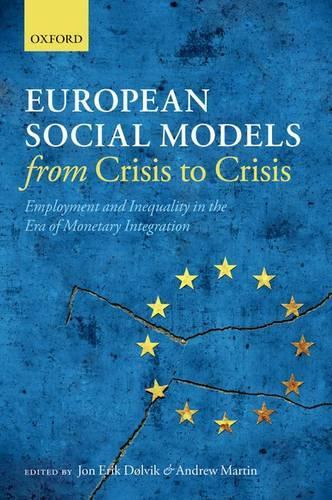
European Social Models From Crisis to Crisis:
Series: English
Europeans use 'social models' to refer to the combination of welfare state, industrial relations, and educational institutions jointly structuring what we can think of as the supply-side of the labor market. The dominant view in controversy over the social models has been that in the name of equity they have impaired the labor market's efficiency, thereby causing unemployment. But doubt is cast on
NaN
VOLUME
English
Paperback

Europeans use 'social models' to refer to the combination of welfare state, industrial relations, and educational institutions jointly structuring what we can think of as the supply-side of the labor market. The dominant view in controversy over the social models has been that in the name of equity they have impaired the labor market's efficiency, thereby causing unemployment. But doubt is cast on this supply-side-only diagnosis by powerful macroeconomic developments, from the Europe-wide recession following Germany's post-unification boom to the deepest economic crisis since the interwar Great Depression, which the Eurozone's truncated economic governance structure transformed into a sovereign debt crisis, threatening the Euro's and even EU's very survival. This book explores the interaction of Europe's diverse social models with the major developments that shaped their macroeconomic environment over the quarter century since the fall of the Berlin Wall. It concludes that thisenvironment rather than the social models are primarily responsible for the immense social costs of the crisis.About the Author: Jon Erik Dolvik, Head of Research, Fafo Institute for Labour and Social Research, Oslo, Andrew Martin, Research Associate, Center for European Studies, Harvard University Jon Erik Dolvik is Dr.philos, sociologist, and Head of Research at Fafo, Institute for Labour and Social Research in Oslo, where he has worked since the 1980s. Dolvik has published extensively in the field of comparative employment relations, social models, and labour migration in the Nordic and European context. His doctoral thesis was on Europeanization of trade unions and social dialogue in the 1990s. He is a longstanding member of the Editorial Panel of European Journal of Industrial Relations and Transfer -- European Review of Labour and Research. Besides stays as visiting scholar abroad, Dolvik has been member of several government appointed commissions regarding labour market issues and Norway's relationship to the EU, and is much used as expert commentator on such issues in the Norwegian public. Andrew Martin is a Research Associate, Center for European Studies, Harvard University. His publications include Euros and Europeans: Monetary Integration and the European Model of Society (2004), and The Brave New World of European Labor: Trade Union Responses to Economic Crisis in Western Europe (1999, both co-edited with G. Ross). Martin co-edits Open Forum, the interactive CES working papers series.
Price Comparison [India]
In This Series
Bestseller Manga
Trending NEWS




















